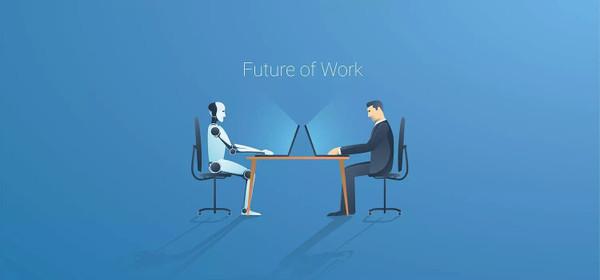Getting practical about the future of work
Curated from: mckinsey.com
Ideas, facts & insights covering these topics:
9 ideas
·11.6K reads
59
Explore the World's Best Ideas
Join today and uncover 100+ curated journeys from 50+ topics. Unlock access to our mobile app with extensive features.
The model of future work
By 2030, up to 30 to 40 percent of all workers in developed countries may need to move into new occupations or upgrade their skill sets. Skilled workers in short supply will become even scarcer. Any company that doesn't join the early adopters and doesn't address its underlying talent needs may fall short of reaching its goals.
278
2.42K reads
Employers should lead the way
The pace and scale that technology disrupts is a social, political and business challenge.
Employers are best placed to make a positive societal impact, for example, by upgrading the abilities of their employees and equipping them with new skills. Employers will also reap the greatest benefit if they can successfully transform the workforce in this way.
226
1.66K reads
Talent is the largest barrier
Talent is the largest barrier to the successful implementation of new strategies.
Many leading businesses realize that it is quicker and more financially prudent to look internally and develop the talent they already have. Yet only a third of global executives report that their organizations have launched any new reskilling programs.
219
1.54K reads
Supporting the future of work
Successful and continuous transformation of the workforce involves 3 broad phases that at first might seem common.
- Scouting: Looking at the future needs, the company needs to identify the most important skill gaps. Then assess the organization's readiness to deliver.
- Shaping. To redesign work for the demands of a more digital future, creating upskilling programs together with employees, and developing the infrastructure to enable the deployment of talent.
- Shifting: Moving the organization's suite of talent-related activities onto a bigger scale.
223
1.24K reads
Capturing the full opportunity
The company needs to asses if they are capturing the full potential of new technologies to generate new revenues and not just trying to cut costs.
Many small individual initiatives within organizations don't see the urgency and end up falling behind, never realizing the magnitude of the opportunity in front of them.
202
1.09K reads
Shaping phase
Companies should gain a clear understanding of the way each employee and team do their present work and involve them in redesigning their roles and ways of working. It will spark better ideas and ensure pain points will get addressed early on. It will also create stronger skill matches and smoother transitions.
When organizations introduce new work, outside-in analytics and expert input can also help to find answers.
200
902 reads
Talent accelerators
Digital strategies are creating entirely new, mission-critical tasks. The redesigning of work is far more than changing existing roles. They need to identify the knowledge, skills, attitudes, and experience required, then look inside to find the best-fit talent.
Sometimes, employees may be identified that can already fit the requirements, and other times training and support should be provided to build new capabilities and skills.
191
872 reads
‘Offboarding’ with sensitivity
Workplace transition demands enormous sensitivity. Some employees may fall short of acquiring the skills needed to make the transition to new areas of work, while others may prefer to seek new employment.
Many companies are forming partnerships with new, tech-savvy outplacement firms to help prepare employees for fresh opportunities by encouraging them to acquire new skills and encouraging growth mind-sets.
191
858 reads
Accelerating the skilling engine
Companies will need to measure the return on their investment in employee skilling.
For instance, the cost of giving employees new skills compared to the cost they would have spent on hiring. The expense should include the opportunity cost of waiting to hire.
190
1.01K reads
IDEAS CURATED BY
Leilani 's ideas are part of this journey:
Learn more about corporateculture with this collection
Identifying the skills needed for the future
Developing a growth mindset
Creating a culture of continuous learning
Related collections
Similar ideas
Read & Learn
20x Faster
without
deepstash
with
deepstash
with
deepstash
Personalized microlearning
—
100+ Learning Journeys
—
Access to 200,000+ ideas
—
Access to the mobile app
—
Unlimited idea saving
—
—
Unlimited history
—
—
Unlimited listening to ideas
—
—
Downloading & offline access
—
—
Supercharge your mind with one idea per day
Enter your email and spend 1 minute every day to learn something new.
I agree to receive email updates





